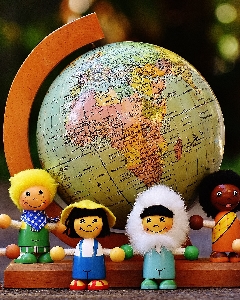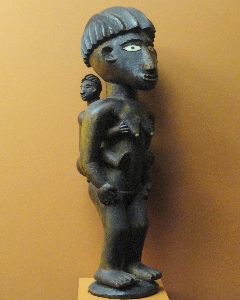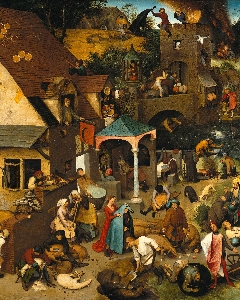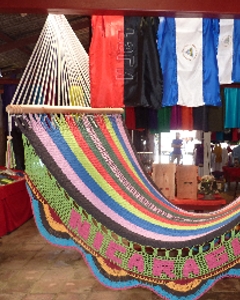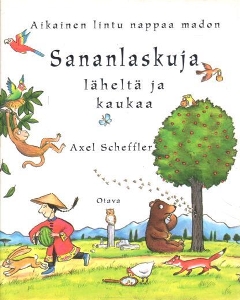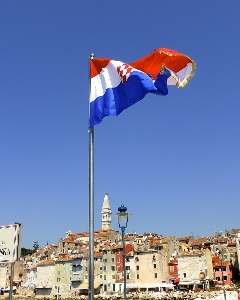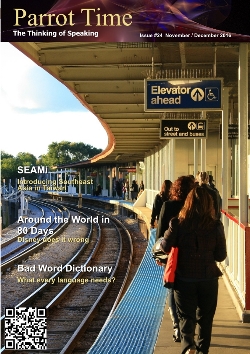Language Learning In The Globalization Era:
Translation, Culture And Power Relations

 Although talking about such a topic can be slippery and complex, still there is a need and we cannot simply pretend not to be aware of it. Like most of my fellow countrymen, I have been raised and educated in a system whose design slightly differed from that of France, and in the books we studied, I never came across a passage pointing to the urgent need to develop national languages or a linguistics "patriotism". My school/ university friends and I would praise the French language as a chief and efficient tool of cohesion, for Côte d'Ivoire has around 60 to 62 local languages. The idyllic impression we had, would undoubtedly survive for a while but could not just be as perfect as each of us could, on our own, cast it in a long-term context. To promote a language is to, conscious or unconsciously, give it a "kind of" credit, and to an extent, revive a sense of belonging in both forbearers and heirs. I hope, through the following lines, to instigate some debate on how, as languages learners and/or languages users, we play a chief role in a language's fate. Let me begin by sorting out some of the motivations that propelled me on a new language learning stage:  Curiosity / entertainment Language is like a kid whose genuine love no money could afford. One should emit some signs and some interest towards the new language; that means to create the vibe for the encounter. Completing what I just said, words are frail "Beings" whose principal will is to find a shelter and have some attention. Then, they reveal themselves and the marvelous scenery they veil. In a nutshell, they partner with you. The apprenticeship becomes funny. From that complicity with the language come emotions – as if invaded by an army of ants – the learner's world is painted with infinite colors as words smile at him/her. In 1997, during a timid night marching over the city of Korhogo in northern Ivory Coast, I was seated on a long table revising my History lessons for the next school week. We lived in a vast yard where the residences were aligned face to face and formed a large rectangle. There was then a common space (called apatam) for pupils to meet and study. Next to me was a kid by the name of Nufo. I was in 4e (grade from the francophone education system, equivalent to year 8), a crucial stage because the student has to choose a new language between German and Spanish, to add to French and English already being studied. Nufo had chosen German. He seemed very happy with that choice. And the other pupils like me could feel it. He had a weird learning method purposely designed, I guess, to make us jealous of how happy he was. He would insist and read quite by singing out loud the expression "der Busen". I had no clue what it meant and I didn't care. What interested me was how he gave the German language a melody of his own with a local rhythm and flavor. I have to confess that not only did he succeed, he also made me a lover of Leuke the rabbit, a character used in his German learning book. Nufo would, when his parents had no sight of him, tell the other kids and me stories about the adventures of Leuke. We knew he was lying to us. But was that relevant? We were already his faithful public. Unfortunately, I ended up learning Spanish (I have nothing against Spanish, I do speak it today) for I moved to a school which only offered Spanish. My time listening to Nufo and his stories did give me, at that time, a reason to sprechen Deutsch and embrace its culture the way they were brought to me. Language learning is a venture. If your horse is not well fed, then you will not only waste your time blaming your language teachers, or learning programs, for nothing; but your apprenticeship process will also look like a punishment. Duty / ambition 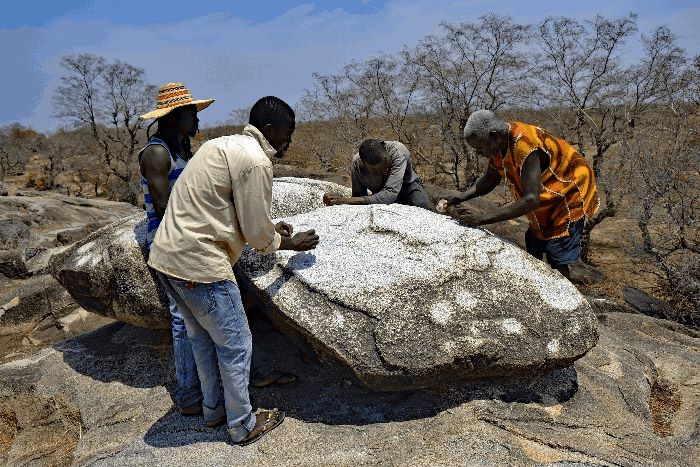 This is the most common case you may encounter. With globalization and the culture of internationalization that institutions and corporations adopt, language learning has become much more an obligation than a choice recently. On the one hand, if a worker wants to get a promotion, he had better understand others languages, and specifically English nowadays. Such a learner may find annoying the proper learning process, and finally ends up with a superficial knowledge on the subject. On the other hand, next to this depressive learner, lives another. A type of avatar who also has no interest in the language until a job position is made public. In the name of a long-time dream of promotion, s/he goes, unwillingly, to a language learning center to initiate what I call a "death wish" learning. This learner starts to learn only when an opportunity becomes available. I have knowledge of no software or language learning program, no method so far, no matter how efficient, capable of preparing such a person in only a month period. S/he might point to the inefficiency of this or that teacher's method. The unfortunate result may have him/her conceive himself or herself as a bad luck soul and denies his/her own God / gods. As to remember a quotation by the Roman philosopher Seneca "Luck is what happens when preparation meets opportunity", which I am tempted to say that the American writer Zig Ziglar brought to the contemporary scene so well. Ziglar said "Success occurs when opportunity meets preparation". Language learning is an art. If so, it needs time to perfect. When one finds out the best way for oneself, then learning becomes fun and turns to be a long-time project as well. Activism 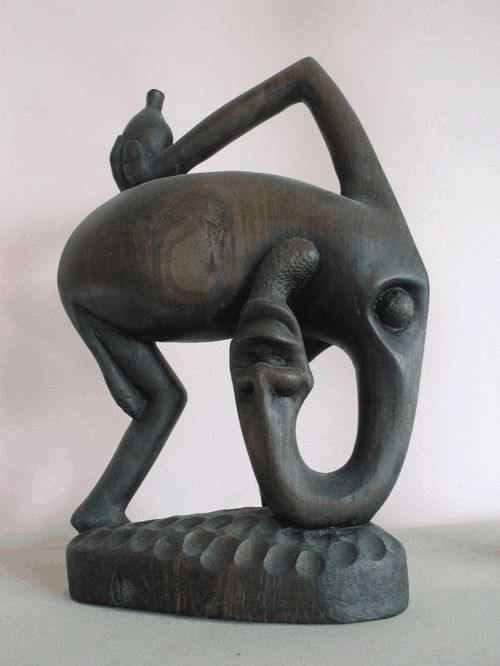 Here is an interesting aspect of language learning that one ignores sometimes. As I stated at the beginning, language learning does not escape ideology. It can either confirm one's position on a specific aspect or it can model one's vision about that aspect. Learn a language and you will have a vision. Learn two languages and you will get two visions. Learn three, four, five languages, etc. and you will have the world at your shores. The more languages one gets to learn, the more open one tends to be. However, openness is preceded by membership and/or ownership in most cases. What foundations does one have to receive others? What culture? What language? When one engages oneself in language learning, one is preparing to encounter the world. Therefore, the language, culture and philosophy one has, constitutes, with no doubt, what those borderless travelers (language learners) relentlessly seek. Another point I deem really important to mention here is the survival project. For many African, Latin-American, Asian and European languages (the so-called minorities), this is a life and death issue. In Côte d'Ivoire, my country, we have about 62 local languages today down from approximately 92 before colonization. As one cannot think outside the language, I leave it to you to evaluate the knowledge we lose per day, per language, and you will certainly see how diversity is bowing down before a big M greedy kid (monolingual and monocultural). Ngugi wa Thiong'o, one of the most influential African contemporary writers and critics, summarized the situation very well when he said in an interview that If you know all the languages of the world and you do not your mother tongue or the language of your culture, that's enslavement. On the other hand, if you know your mother tongue or the language of your culture and you add all the languages of the world to it, this is empowerment. Ngugi is a Kenyan novelist, essayist, playwright, journalist, editor, academic and social activist who spent his life fighting for the production of African Literature by Africans and in African languages. Among his well-known works, we have Decolonizing the Mind: The politics of Language in African literature first published in 1986. Author of many books including several in his mother tongue Gikuyu, he was imprisoned for that. It is obvious then that when one ventures to think the relationship of Europe with Africa, it is hard not to perceive that a type of binarism tends to impose itself. I mean "you" and "us", "centre" and "periphery", "dominant" and "dominated, "colonizer" and "colonized", "master" and "slave", and so on. One could keep combining with only the sake of understanding the transforming relation network one witnesses. One does not need to be a specialist before feeling some of these influences in real life. After I have read The Identity Card (1983) by Jean-Marie Adiaffi, the perception of an existing linguistics ideal that my friend and I had about French language changed. And I am happy the Ivorian intellectuals perceived it, and I would like to mention two of many: Professor Kouadio Jérémie (dean of the Faculty of Languages, Literature and Civilizations – UFHB) and Professor Ettien Koffi (who prompted himself for any constructive discussion on the topic. He is professor of Linguistics at St Cloud State University, MN USA. He owns http://anyiliteracy.org/anyiFiles/literacy.php and http://orthographyclearinghouse.org/). Thank you for the great work you've have done so far.  In fact, as I mentioned above, most of the books we studied, if not inspired by the French models, were printed in France. That is okay. But reading Adiaffi, had me think twice on the potential influence that the French language had and still has upon me and upon my own language, Senufo. Subsequently, does speaking Senufo, Dioula, Agni, Bambara etc. have any global symbolic value? Very little. For I judge The Identity Card (1983) by Adiaffi fundamental to raise the awareness on language learning act as a factor of social change, I set to translate it. But translation, for one who loves languages and reading, implies more than simply displacing or substituting some words of a language by others of another language. It requires reflections that are not simple at all. |
| Language Learning In The Globalization Era | |||
| Writer: | Yéo N'gana | ||
| Images: | |||
| |||
All images are Copyright - CC BY-SA (Creative Commons Share Alike) by their respective owners, except for Petey, which is Public Domain (PD) or unless otherwise noted.
comments powered by Disqus

